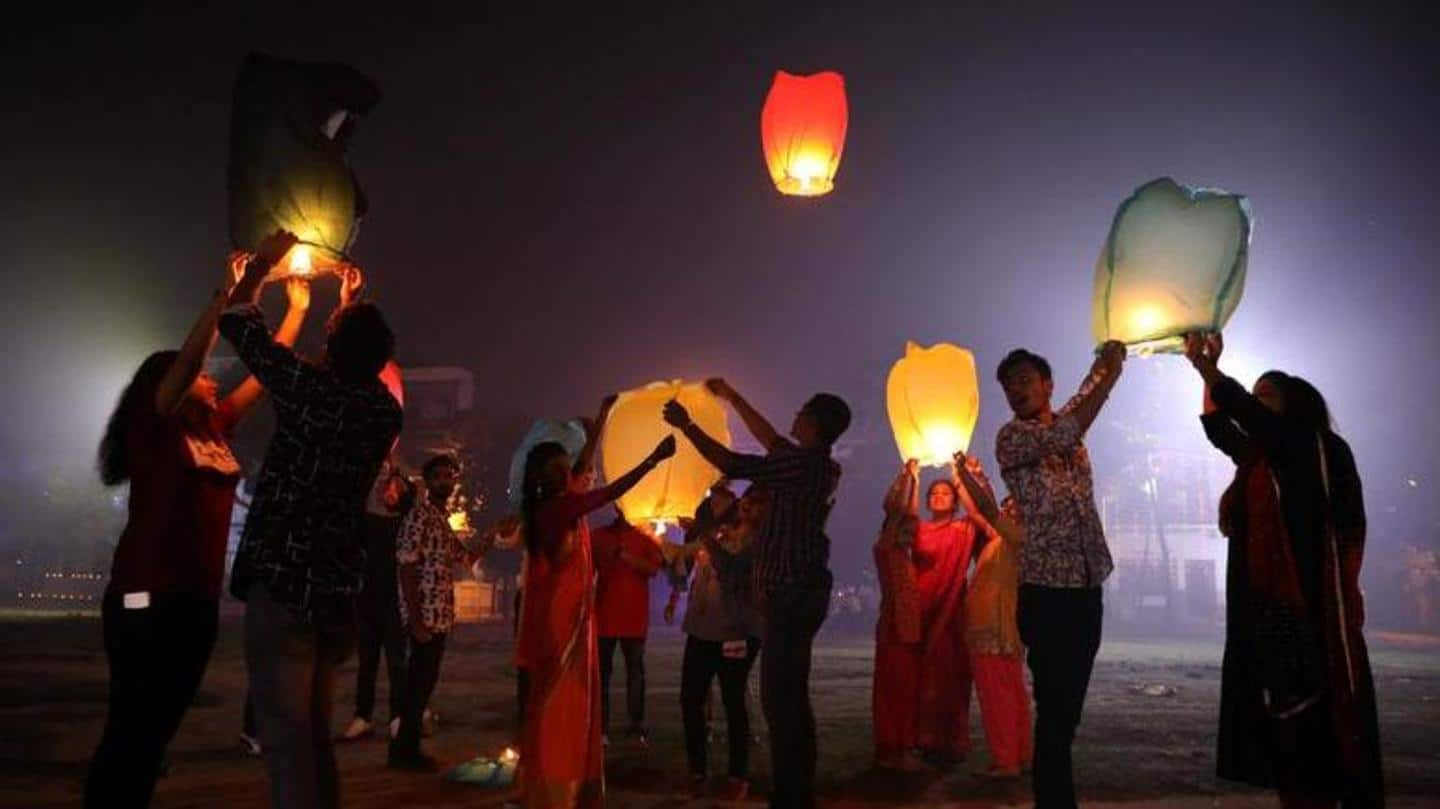
No festivities in containment zones: SOPs for festive season released
What's the story
Ahead of the festive season in October in India, the Union Health Ministry on Tuesday issued Standard Operating Procedures (SOPs) on preventive measures to contain the spread of COVID-19 during festivities. The government has on several occasions earlier reminded people to follow precautions while celebrating festivals, when large gatherings can facilitate the spread of the virus. Here are more details.
Details
No religious worship, fairs, rallies, functions, etc. in containment zones
Under the guidelines, the Health Ministry stated that no festive events—such as religious worship, fairs, rallies, exhibitions, cultural functions, processions, etc.—will be allowed in containment zones. Further, persons above 65 years of age, persons with co-morbidities, pregnant women, and children below the age of 10 years have been advised to stay at home. This applies to event managers and staff as well.
Information
People from containment zones not allowed at events
Festive events are only permitted outside containment zones. Organizers, staff, or visitors from containment zones shall not be permitted at events. People residing inside containment zones may be encouraged to observe all festivals inside their homes and not move out.
Generic precautions
Generic preventive measures to be followed:
Individuals must wear masks and maintain six-feet physical distancing as far as feasible. Frequent use of hand sanitizer/hand wash is recommended. Respiratory etiquette should be strictly followed. Spitting should be strictly prohibited. The use of the Aarogya Setu app is recommended. Individuals have been directed to self-monitor their health and report an illness, if any, to the state or district helpline at the earliest.
Planning
Plan should be created in advance to conduct events
A plan should be prepared well in advance about conducting each event. Event sites should have adequate floor areas and proper markings to ensure physical distancing. Adequate manpower shall be deployed/arranged by the organizers to ensure that preventive measures are being followed. Event organizers/business owners shall make adequate arrangements for face masks/covers, hand sanitizers, etc., for their staff.
Planning
Venues should have designated spaces to isolate symptomatic persons
Venues should have designated spaces to isolate people found symptomatic. An adequate number of ticket counters shall be planned to ensure physical distancing. Event organizers/business owners are recommended to make provisions for contactless payment. A simple do's/dont's advisory may be circulated/displayed prominently at the venue. Posters/standees/AV media on preventive measures should also be displayed. All event managers shall brief the staff about the SOPs.
Entry
Venues should have multiple entrances/exits, adequate cross-ventilation
The venue should preferably have multiple and separate entry/exits. It must also ensure adequate natural cross-ventilation. Entrances should mandatorily have hand hygiene and thermal screening provisions. Only symptomatic persons shall be allowed inside the venue. Six-feet physical distancing should be maintained in queues at entrances and inside the venue. For religious places, footwear must be removed inside private vehicles or in separate slots.
Visitors
Touching statues, idols, holy books not allowed
In religious places, touching statues/idols/holy books shall not be allowed. The number of visitors inside the venue shall be limited in accordance with the Home Ministry's orders. Seating at pandals, food courts, shows, shops, stalls, cafeteria, etc., should follow physical distancing. Arrangements for safe drinking water, if required, should be made (preferably with disposable glasses). For air-conditioning/ventilation, the CPWD's guidelines should be followed.
Events
Only recorded music/songs allowed; no choirs, singing groups
Choir or singing groups will also not be allowed at events. Recorded devotional music or songs may be played. Community kitchens, langars, etc., should follow physical distancing norms while preparing and distributing food. Community kitchen managers and business owners of food outlets should ensure adherence to the highest level of personal and environmental hygiene, especially while preparing, serving, or eating meals and after disposal.
Sanitation
Venue should be frequently sanitized; focus on frequently touched surfaces
Effective and frequent sanitation should be conducted within the premises with special focus on frequently touched surfaces. Regular cleaning/disinfection of frequently touched surfaces should be made mandatory at all public utility common areas using 1% sodium hypochlorite. Visitors/staff should be advised to dispose of used face masks/covers in covered bins at the premises. These should be disposed of as per hazardous waste disposal guidelines.
Infection
Suspected cases to be isolated until doctor's examination
In case a suspected case is identified, they should be isolated in a room/area. Until they are examined by a doctor, the person shall remain isolated with a face mask/cover on. The nearest medical facility or the state/district helpline should be informed if the symptoms deteriorate. A risk assessment shall be undertaken by the designated public health authority. The premises shall be disinfected thereafter.